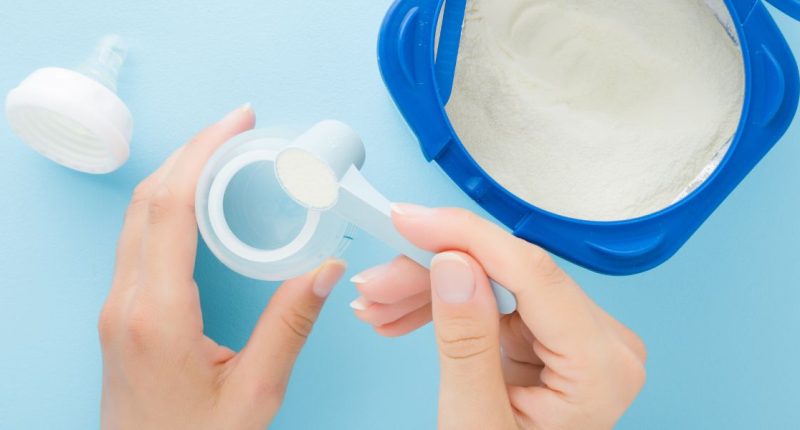A report has found that the largest global consumer goods company, Nestlé, is adding sugar and honey to infant milk and cereal products sold in many poorer countries, going against international guidelines designed to prevent obesity and chronic diseases.
The report is part of a collaboration between Public Eye and the International Baby Food Action Network.
Public Eye campaigners collected samples of Nestlé’s baby-food products sold in Asia, Africa and Latin America and sent them for testing in a Belgian laboratory.
- Vimto recalled after drinks labelled with false ‘No Added Sugar’ statement
- Yoghurt labels to outline they can lower risk of type 2 diabetes despite containing high levels of sugar
- Frozen shoulder triggered by high blood sugar
Testing and examination found added sugar in Nido, a follow-up milk formula brand for infants aged one and above, and Cerelac, a cereal for infants aged six months to two years.
Further testing of the multinational’s products in its main European markets found no trace of added sugar in the children’s formula or in its products aimed at children aged between six months to one year in its main European markets.
Public Eye’s agriculture and nutrition expert, Laurent Gaberell, said: “Nestlé must put an end to these dangerous double standards and stop adding sugar in all products for children under three years old, in every part of the world.”
Consumers cannot always easily identify if a product contains added sugar or how much sugar it contains based on the nutritional information label provided as many naturally occurring sugars are often included in the same heading as added sugars.
Guidelines provided by the World Health Organization for the European region explain that no added sugars or sweetening agents should be permitted in food for children under three-years-old. Although there is no guidance for the rest of the world, researchers say these European guidelines are equally relevant for all regions.
This new report shared that global retail sales for Cerelac are above $1 billion (£800m). Its highest sales figures are across low- and middle-income countries, with 40% of sales in just Brazil and India.
Dr Nigel Rollins, a medical officer at the WHO, explained that the findings represented “a double standard […] that can’t be justified”.
The report found that in Senegal and South Africa there was 6g of added sugar for every serving of biscuit-flavoured cereals for babies aged six months and older. The same product in Switzerland contained no added sugar.
- Activity snacks can help people with type 1 diabetes manage blood sugar levels
- Ultraprocessed and fast foods should be avoided during pregnancy
- Genetic link between blood sugar levels and migraine confirmed
In India, Cerelac products contained an average of more than 2.7g of added sugar for every serving, according to tests.
Two out of eight Cerelac products in Brazil had no sugar, however the other six contained almost 4g per serving. One product sold in Nigeria was found to have 6.8g per serving.
When testing the Nido brand, the report found significant sugar levels variations.
In the Phillipines, products for toddlers had no added sugar yet, in Indonesia, Nido baby-food products had 2g of added sugar as honey per 100g.
In Mexico, two of the three Nido products for toddlers had no added sugar but the other contained 1.7g per serving. In South-Africa, Nigeria and Senegal, Nido Kinder 1+ products contained almost 1g per serving.
A spokesperson from Nestlé said: “We believe in the nutritional quality of our products for early childhood and prioritise using high-quality ingredients adapted to the growth and development of children.”
She explained that in the “highly regulated” category of baby food, Nestlé complies “with local regulations or international standards, including labelling requirements and thresholds on carbohydrate content that encompasses sugars” and declares the total sugars, including from honey, in its products. She added that recipe variations depend on factors such as local regulations and availability of ingredients.
She continued to say that within the past decade, the amount of added sugars in Nestlé’s infant cereals portfolio has reduced by 11% and the organisation is still reformulating products to reduce sugars more.
She also claimed that sucrose and glucose syrup were being phased out of “growing-up milks” for toddlers worldwide.





